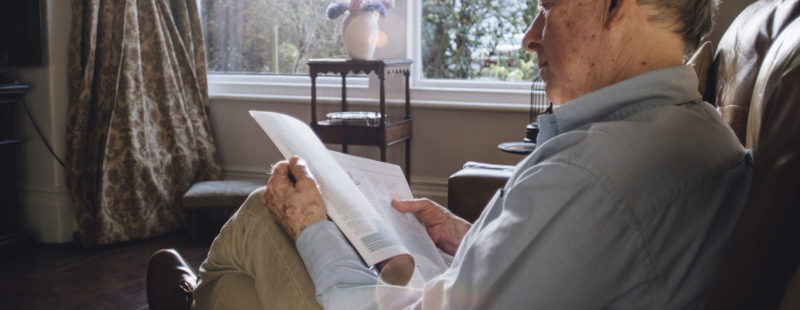Ahead of our next Loneliness in the time of Covid-19 webinar on 18th August, Dan Jones, an associate of the Campaign, reflects on his experiences supporting a man in his community who is shielding, and the issues this raises for addressing loneliness in the next phase of the pandemic.
My own experience
I met Steve a few months ago, when I answered a request on the local mutual aid WhatsApp group for some help with shopping. Steve’s immune system is compromised, and he’s been shielding since March.
To stay healthy, Steve has to be very careful about what he eats. Since I started doing his weekly shop, I’ve made friends with the local organic grocer, and spent more time in health food stores than in all my life before Covid.
Steve, of course, hasn’t had any of these interactions, or any others. Our regular grocery drop-off is masked and gloved, and carefully choreographed to maintain social distance at the doorstep. Even through the facemask, Steve’s anxiety is clear.
As lockdown lifts
As lockdown restrictions begin to lift, the official advice is that Steve no longer needs to stay home. He doesn’t have a job, but if he did, he would be expected to return to work, provided his workplace was ‘Covid secure’. Food parcels for vulnerable people have been discontinued, and other support that people like Steve have relied upon is also starting to shrink back. The government says it’s safe for him to go back to normal.
Whatever the guidance says, though, Steve has no intention of going to the shops any time soon. He’s highly vulnerable to infection, and as long as a cough could kill him, he’s understandably keeping his shield up.
I can do his shopping for now, while I’m still working entirely from home. The most recent guidance suggests I’ll still be able to pick up Steve’s prescriptions for him too – although as I’m part of a mutual aid group, not a registered NHS Volunteer Responder, that’s not entirely clear.
What happens next?
But this leaves two big questions. On a practical level, what happens when the mutual aid group runs out of steam, or when the commute and after-school / weekend activities squeeze my spare time? Steve was referred to us by his social worker, but the council won’t be able to shop for him once the mutual aid volunteers have gone back to the office.
And what about the emotional impact of Steve’s ongoing lone lockdown? Over the last four months, he hasn’t had any face-to-face contact with anyone but me, and half our conversations are about which brand of tea he prefers. I don’t know what Steve was like before Covid-19, but I do know he doesn’t have many friends locally, and given his health condition, I suspect he was already quite anxious.
His state of mind certainly hasn’t got any better over the last few months, and it’s hard to imagine that he’ll find it easy to reconnect with people, even once he feels it is safe to do so.
Steve is far from alone
In one important way, Steve is far from alone. Over 2 million people in England have been shielding, many of them on their own. Councils, charities and community groups have made immense efforts to support them, with telephone calls and doorstep visits as well as practical help like shopping.
Even so, these people have been isolated for months – and many will continue to be isolated for many months to come. As the initial crisis response scales back, where will ongoing help come from? How can we ensure that people like Steve receive the practical, emotional and social support they need to stay safe, and to reconnect?



.png)


No comments on this article yet. Please feel free to submit a comment below.
By submitting a comment you grant Campaign to End Loneliness a perpetual license to reproduce your words and name/web site in attribution. Inappropriate and irrelevant comments will be removed at an admin's discretion. Your email is used for verification purposes only, it will never be shared.